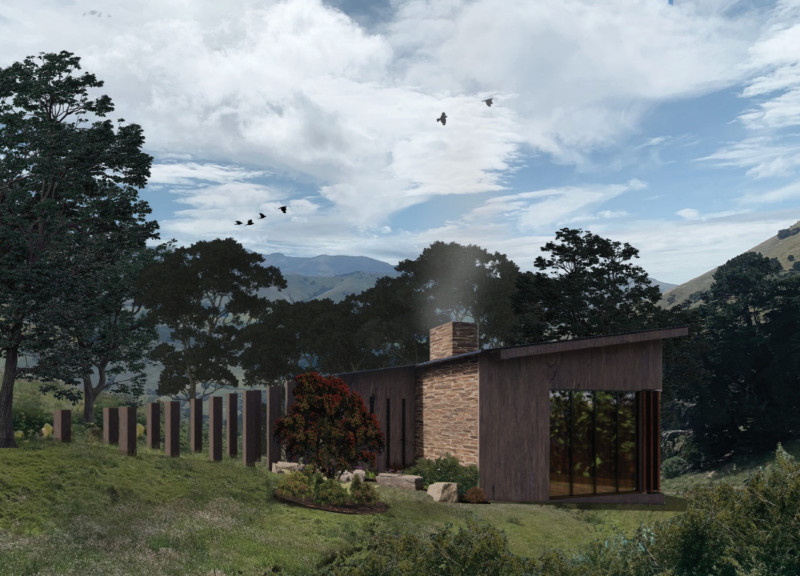5 key facts about this project
Diffuse is located in a quiet forest on the Northern Island of New Zealand. The structure serves as a meditation cabin, designed to blend thoughtfully with its natural surroundings. The main idea focuses on the use of rotating panels, allowing users to control light and air flow, thus adapting the space to different meditation practices.
Architectural Form and Transition
The design features a series of pillars that act as a transition from the forest to the interior of the cabin. A corridor, which visitors access by descending three steps, guides them deeper into the mountain landscape. This arrangement enhances the feeling of being surrounded by nature and prepares occupants for moments of reflection.
Natural Light Control
One notable aspect of the design is the south wall, equipped with a four-panel sliding glass door. Combined with adjustable exterior panels, this feature creates a flexible environment for meditation. Light enters the space through the rotating panels, offering varying levels of brightness that contribute to a calm and soothing atmosphere.
Cultural and Ecological Integration
Inside, a stone fireplace framed by rounded benches adds both functionality and a sense of community. It encourages social interaction during meditation sessions. The inclusion of a Pohutukawa tree (Metrosideros excelsa) at the entrance acknowledges the cultural significance of the land to the Māori people. Local medicinal plants, such as Kawakawa (Piper excelsum), are also integrated into the landscaping, enhancing the ecological connection of the project.
Outdoor Engagement
Large stones in the garden serve as seating, providing an opportunity for outdoor meditation. This area enhances the experience and allows users to interact with nature. The design emphasizes a strong relationship between the built environment and the landscape, encouraging moments of quiet reflection in a tranquil setting.
The cabin exemplifies a thoughtful balance between light, space, and natural elements, inviting individuals to pause and engage with their surroundings.























































